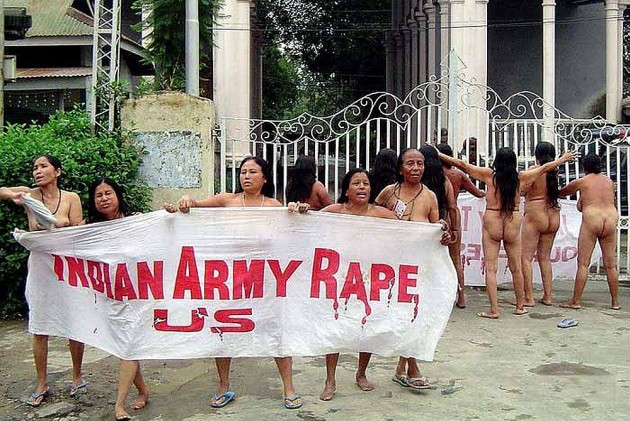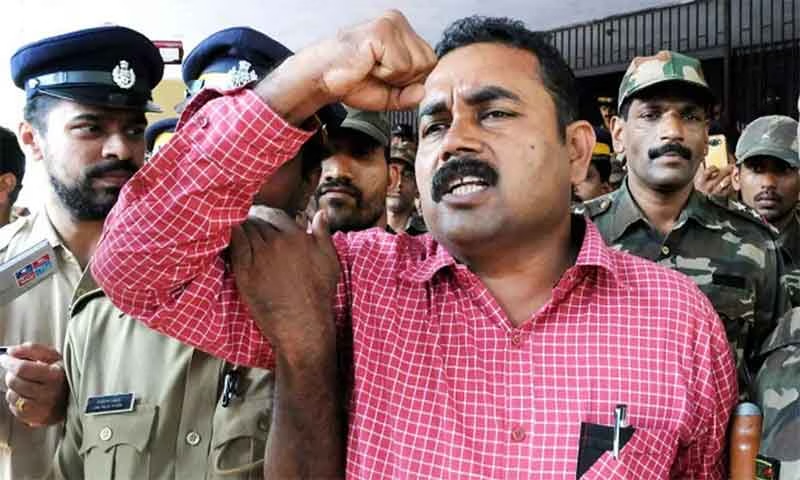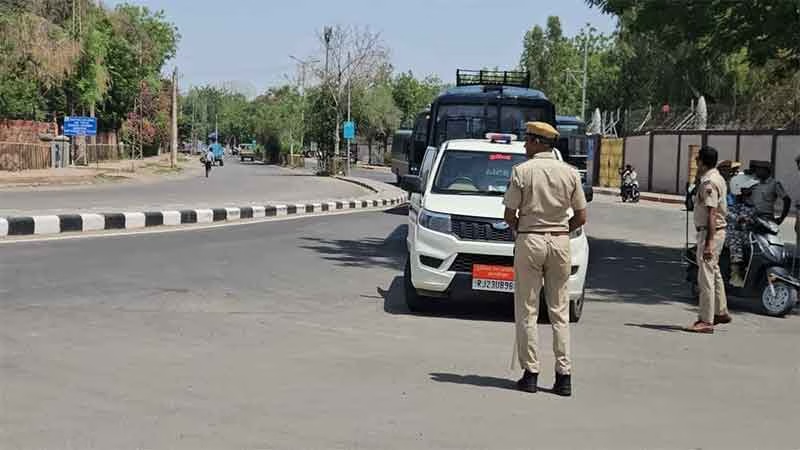
Imagine a war that goes on for almost six decades. A war that nobody notices, even though it would be counted as the thirteenth longest war in human history. This is a conventional war, where ‘enemy’ territory is looted, its women are raped, its men killed. With only one difference. In this war, the enemy, technically, belongs to the same nation as the marauding army, and there are no quantitative gains in sight. Not any longer, if they ever were. The war is also different in one other detail. On one side is the national army, and the other is a motley group of disgruntled youth, fighting for a modicum of autonomy, the demand for full independence having long subsided. This is the situation in the Indian North East, where the Armed Forces (Special Powers) Act was promulgated in 1958 to quell the Naga insurgency, and fifty eight years later, continues to be in force, creating terror in far greater measure than the original threat to the Indian state.
In fifty eight years, the Indian economy has grown twenty times, its population has trebled, it has had fourteen different governments at the centre, and the literacy rate has gone up from approximately 25 per cent to 75 per cent now. Almost everything in India has changed. And almost the only thing to remain constant is the AFSPA in various parts of the North East. The take-no-prisoners nature of the AFSPA, whose key provisions are that an officer of the armed forces can
- After giving such due warning, Fire upon or use other kinds of force even if it causes death, against the person who is acting against law or order in the disturbed area for the maintenance of public order,
- To arrest without a warrant anyone who has committed cognizable offences or is reasonably suspected of having done so and may use force if needed for the arrest.
- Stop and search any vehicle or vessel reasonably suspected to be carrying such person or weapons.
- Army officers have legal immunity for their actions. There can be no prosecution, suit or any other legal proceeding against anyone acting under that law. Nor is the government’s judgment on why an area is found to be disturbed subject to judicial review.
- Protection of persons acting in good faith under this Act from prosecution, suit or other legal proceedings, except with the sanction of the Central Government, in exercise of the powers conferred by this Act.
has still not been able to quell unrest and disturbance in the area. Nothing has been achieved, except when the central and state governments have engaged with the insurgents. After countless instances of murder, rape and torture, the army has ‘conquered’ nothing.
And yet every successive government has continued to retain the AFSPA. Nay, it has chosen to repeat the ‘success’ of the act in J&K, where it was promulgated in 1990.
Countless human rights activists, organisations, even government agencies, have questioned the utility of this unconstitutional, undemocratic, uncivilised act. Its language and message is clear – to create large scale terror, and bring a population to its knees. The Indian government has a different point of view. What better way, it argues, to quell an insurgency than to unleash its own brand of terror, to give target practice to its soldiers in otherwise times of peace? How better to flex its muscle than by dragging poor men and women from their homes and beating and raping them to death?
If uniforms were the answer to everything bad in society, we’d have them surging around us all the time. We’d have a uniform in front of every garbage heap in the city, to prevent littering, in front of every home, to prevent theft, in front of every carriage of every train, to prevent robbery and rape. In reality, in India, law enforcement is an under-serviced sector. The AFSPA handles this in one stroke. The areas under AFSPA are carpet bombed with soldiers, their guns a convenient rejoinder to every argument.
Many statements are issued by the government on the desirability of repealing this law. Many statements are issued by its army on the need for it to vacate the bunkers. Many stern directions are given by the courts, the human rights commissions, and other statutory bodies, to repeal the AFSPA, or at least to limit its powers. But like a drug resistant virus whose dangers are known to everyone and cure to no one, the AFSPA also continues to stick to the body of the Indian polity, creating mayhem and violence, the likes of which are seldom witnessed in a democracy. Ministers and bureaucrats and army generals, everyone who matters, has emphasised the need for repealing a law that holds no one accountable for extra judicial killing and torture. But when it comes to walking the talk, sense is replaced by muscle, the ceremonial show of brawn that’s a relic of our colonial past. The rule-by-the-gun nature of our past rears its ugly head in the form of this act, which indeed is evolved from a British law, passed to quell the Quit India movement.
The counter to AFSPA is simple: it’s no AFSPA. No more fake encounters, no more ‘capture and torture’, no more guerrilla tactics, no more armed combat in one’s own land. The strategy of ‘create an enemy and then crush it’ has proved to be hopeless and must be abandoned. A law that has created more problems than solutions, that has vilified more than one generation, that has embittered everyone within its ambit, that has created fear instead of confidence, is a bad law. A law that overrules the Constitution of Indian, that thumbs its nose at Article 21, that denies due process to an Indian citizen, whether a ‘terrorist’ or not, is a bad law. It achieves nothing except more violence.
The Supreme Court has finally spoken up for the right of the people to due process, and ordered investigation into 1528 alleged fake encounters in Manipur in the last twenty years. While the inquiry is a step in the right direction, should it also not propel the Indian government towards some honest introspection on the need for such bad laws? Should it not force it to question its dependence on violence over dialogue in managing the aspirations of its citizens?
The Indian state has offered legal and political justification for summarily denying the right of one part of its citizenry to life and liberty. It’s high time that such justification was held invalid. Nothing justifies the subjugation and terrorisation of Indian citizens by its own government. AFSPA must go. Period.
Sangeeta Mall is a novelist and former editor of The Radical Humanist and The International Humanist News. She lives in Mumbai. [email protected], @livingbyondpink
















































